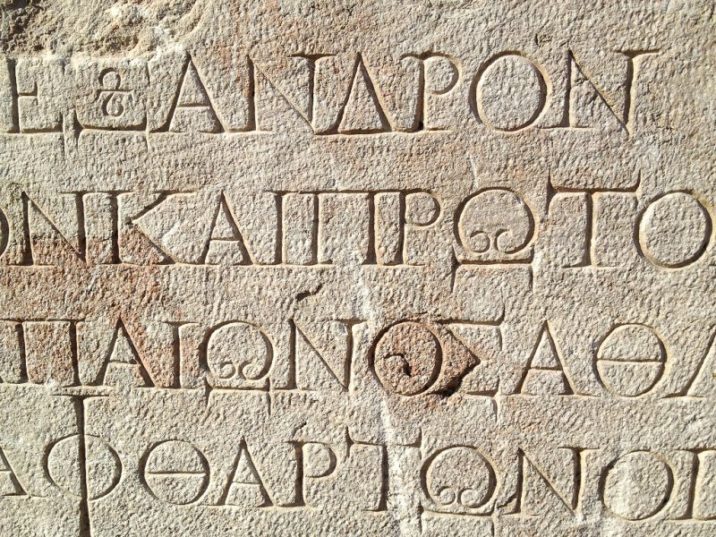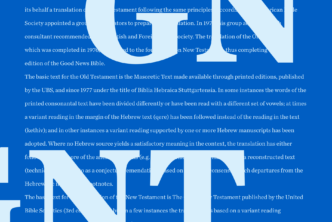Brill volumes have a special place in my heart. Not only are they aesthetically pleasing as bound physical monographs, with utmost attention to detail in their craftsmanship of cloth-bound covers and gold-letter embossing, but the aesthetics also extend to the written text.
In 2011, Brill commissioned John Hudson of Tiro Typeworks to design their own font, affectionately titled “the Brill” (this font is so appealing, that a number of scholars now use it from draft to submission phase in their work instead of the ubiquitous Times New Roman). This combination of thoughtful internal and external design means that, when you think of Brill, what rightly comes to mind is world-class academic content in a highly-readable format.
As a result, Brill volumes are expensive. Quality comes at a price. I own a few Brill print monographs, but I also own 30 Brill resources as part of my Logos digital library.
There is one digital Brill resource, however, that I cannot yet lay claim to, and neither can you. And that’s a shame, because for anybody who delights in the intricacies of the Greek language, we are missing out on a very powerful resource.
The Etymological Dictionary of Greek (EDG) is 1,800 pages of detailed etymological content on every Greek word within the 2,000 year period stretching from Homer to Hesychius (5th cent. AD).
The 7,500 entries include information for each word, including first attestation, all etymologically relevant variants, dialectal forms, derivatives, compounds, and bibliographical references.
Brill rightly claims that this resource is indispensable, a must-have for any classicist’s desk, but I believe that it should also be in every biblical scholar’s digital library. While some may protest that the purest form of a resource of this caliber (or any resource by a publisher of such high standards) must be owned and used in its original print form, I am not so convinced.
Size
First, the print EDG is massive. You are lucky to find desk space suitable for both volumes, and if you stuff it into a corner of your bookshelves it’s main function will be to collect dust. The print copies are simply too big to be practical.
Cost
Second, the print EDG is extremely expensive. You can purchase the print copies on Brill’s website for $587. Have fun justifying that to your kids who want to go to the movies this weekend, when you could jump in early on the Logos pre-pub pricing and get an 82% discount on that price.
Use
Third, the print EDG is intended for efficient research. And in order to be an efficient researcher in the digital age, you need digital resources. Say you’ve come to a word in the Greek NT that you’d like further information on. You face a conundrum: do I get up from my desk, walk over to my bookshelves, blow the dust off the EDG, and then carry it back to my desk without straining my back, only to put it back again so that I have room on my desk again? Or you could double click the word and up pops the EDG in a new window. The time savings of digital-resource lookups in dictionaries and lexicons give a superb return on investment. That is not to discount the print editions, however, which have the digital beat in terms of longevity and pure aesthetic beauty.
Mobility
Finally, the combination of quality with mobility is a perfect match. You can bring the EDG to the coffee shop, the library, the park, the beach, even the bath, because you’ve got it on your mobile device, be that a laptop or a smartphone. This equates to freedom, the freedom to do rigorous, high-quality research anyplace you choose to work, or even places you might not initially choose (let the readers with small children understand).
I’m giving you fair warning in advance. The Etymological Dictionary of Greek is a superb resource from one of the best publishers around. But the pre-pub price will only last until the EDG becomes fully-funded, at which point the price should double.
So if you think the EDG is a resource that will enhance your study of the Greek, in that it will add legs to the argument in your thesis, give you the metaphorical edge over that annoyingly brilliant scholar down the hall, or bolster your understanding of one of the most important languages in the history of the world, then seriously consider joining in with this effort to get the EDG published in a highly usable and aesthetically pleasing digital format.
Also, consider downloading “the Brill” for free, and making it the default font for your Logos program, both Greek and English (or German, French, et al) alike. It’s a whole new way to engage with your Logos library, and might just get you to read more in a digital format.








